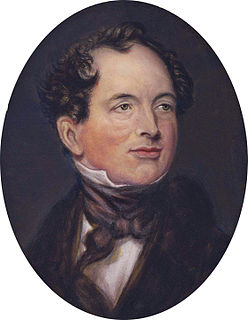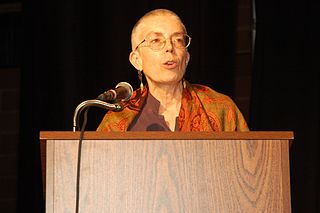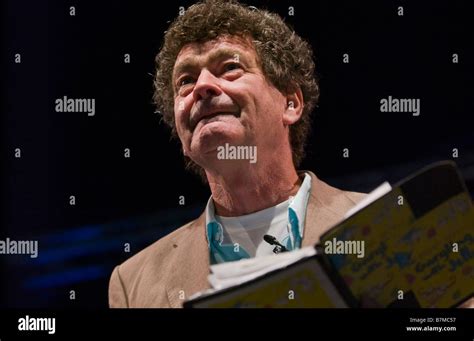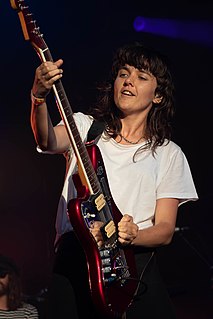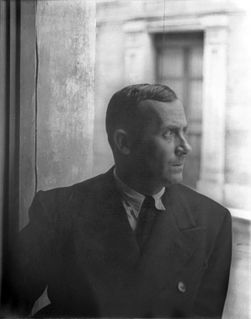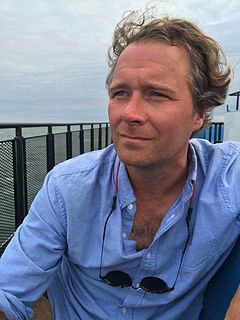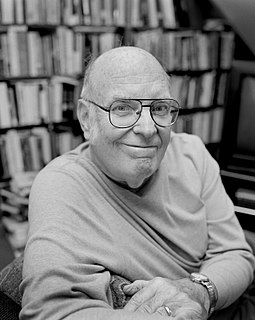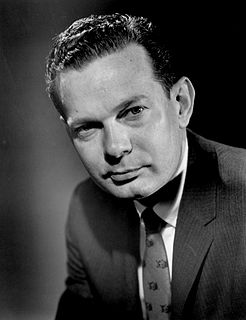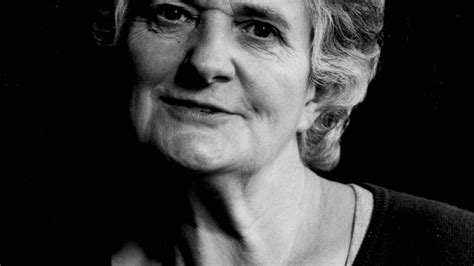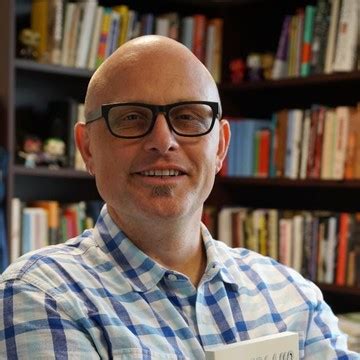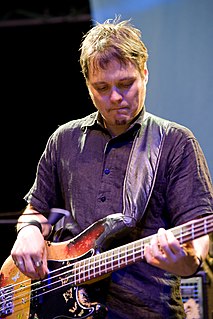Top 1200 Love Poetry Quotes & Sayings - Page 13
Explore popular Love Poetry quotes.
Last updated on November 20, 2024.
When we relate to our bodies as having soul, we attend to their beauty, their poetry and their expressiveness. Our very habit of treating the body as a machine, whose muscles are like pulleys and its organs engines, forces its poetry underground, so that we experience the body as an instrument and see its poetics only in illness.
we are far too used to the assumption that poetry and poets will be there when we want them, no matter how long they have been ignored, taken for granted, misused. After all, isn't poetry a form of prophecy, and aren't prophets known for their talent for flourishing in inhospitable deserts and other bleak surroundings? Maybe. But maybe not indefinitely.
My biggest poetic influences are probably 20th-century British and Irish poets. So I suppose I'm always listening for the music I associate with that poetry, the telling images, the brevity. I want to hear it in my own work as well as in the poetry I read. However, I think I'm generally more forgiving of other poets than myself.
Love--what a volume in a word, an ocean in a tear, A seventh heaven in a glance, a whirlwind in a sigh, The lightning in a touch, a millennium in a moment, What concentrated joy or woe in blest or blighted love! For it is that native poetry springing up indigenous to Mind, The heart's own-country music thrilling all its chords, The story without an end that angels throng to hear, The word, the king of words, carved on Jehovah's heart!
Fear kills, want to kill. Fear is destructive. Love is creative energy. When you love you would like to create - you may like to sing a song, paint, write poetry, but you would not take a bayonet or an atom bomb and go rushing off madly to kill people who are absolutely unknown to you, who have done nothing, who are as unknown to you as you are to them.
We are afraid that Heaven is a bribe, and that if we make it our goal we shall no longer be disinterested. It is not so. Heaven offers nothing that the mercenary soul can desire. It is safe to tell the pure in heart that they shall see God, for only the pure in heart want to. There are rewards that do not sully motives. A man's love for a woman is not mercenary because he wants to marry her, nor his love for poetry mercenary because he wants to read it, nor his love of exercise less disinterested because he wants to run and leap and walk. Love, by definition, seeks to enjoy its object.
Poetry can be criticized only through poetry. A critique which itself is not a work of art, either in content as representation of the necessary impression in the process of creation, or through its beautiful form and in its liberal tone in the spirit of the old Roman satire, has no right of citizenship in the realm of art.
Poetry springs directly from our primal need and capacity for communication[Poetry] mobilizes such a concentration of devices, such an intensification of language via rhythm, syntax, image and metaphor. Reading it-the best of it-can create another, very different kind of perpetual present, an awareness that can be as ongoing in the soul as the stop-time of trauma.
Among those today who believe that modern poetry must do without rhyme or metre, there is an assumption that the alternative to free verse is a crash course in villanelles, sestinas and other such fixed forms. But most... are rare in English poetry. Few poets have written a villanelle worth reading, or indeed regret not having done so.
Modern" poetry is, essentially, an extension of romanticism; it is what romantic poetry wishes or finds it necessary to become. It is the end product of romanticism, all past and no future; it is impossible to go further by any extrapolation of the process by which we have arrived, and certainly it is impossible to remain where we are who could endure a century of transition ?
Poetry is probably the one field of writing in which it is a mistake to try to psych out editors. In fact, specific marketing advice can sometimes harm the novice poet by enticing him to pursue fashions. The poet's best hope is to sound like nobody else, The finest, most enduring poetry constructs a marketplace of its own.
To write poetry, like sincere poetry, it is like performing heart surgery on yourself without anesthesia...in public...You are peeling back layers. You are dissecting yourself...You do not know what they [the audience] is going to do when you reach into yourself and rip out your organs to be displayed
Love's the only thing I've thought of or read about since I was knee-high. That's what I always dreamed of, of meeting somebody and falling in love. And when that remarkable thing happened, I was going to recite poetry to her for hours about how her heart's an angel's wing and her hair the strings of a heavenly harp. Instead I got drunk and hollered at her and called her a harpy.
I'm primarily a poet, so I'd have to say in my case I'd investigate the mystery in poetry in a different way than prose might investigate it, in a way that includes the power of the music of language and maybe more imaginatively in poetry, but I don't really know about better or worse. I guess it depends on the writer.
I have the idea that lyric poetry is a poetry that's driven by a sense of the presence of death. That there's something unbearable about the fact that we're going to die and that we can't stand it and I think you find that out in childhood and you don't really - at least I found it out in childhood and I found it hard to get over.
I would say there are different kinds of poems. There are things that poets in the history of poetry hit upon when they're very young that can never be outdone and it's a remarkable, strange experience when you think of say Arthur Rimbaud who write poetry between the ages of 17 and 21 whose career was over by the time he was 22.
I've never thought of my poems as violent. Violence, to me, has so much negativity attached to it - maybe that's my trouble with the word. But ferocious - indeed, I'll take it. And yes, poetry does need a bit of ferocity. Poetry needs to be alive, unabashedly, and, for me, that entails seeing its complexity - the grit and grimness and jubilance and beauty.
